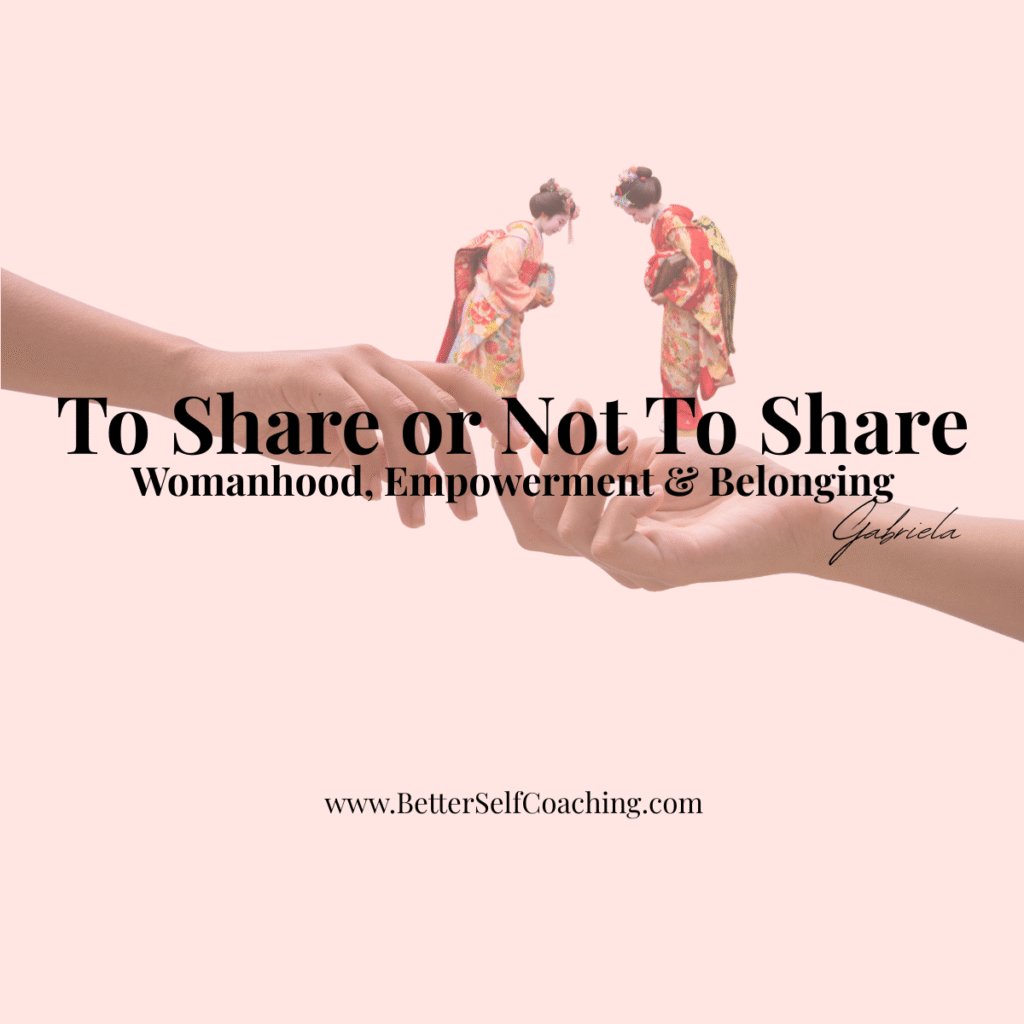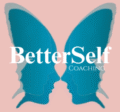
To Share or Not To Share
Womanhood, Empowerment, and Belonging
Recently, I saw a post that made me smile:
“Red-haired women and blonde women are both women. Women who are kind and women who are mean are both women. So are trans women and women who aren’t trans. ‘Trans’ (like ‘red-haired’) is just an adjective”
An adjective describes or modifies a noun, giving more information about its qualities or journey. Could it all be just a question of grammar and semantics?
Honoring Complexity
Of course, the reality of womanhood is more complex than grammar alone. Our experiences are shaped by history, biology, society, and the stories we carry and honor. This isn’t about reducing anyone’s journey to a word or a label—it’s about opening the door to a conversation that includes us all. My transness doesn’t make me less of a woman.
Naming Unique Experiences
As a trans woman, there are aspects of womanhood I will never experience—like menstrual cycles, pregnancy, or giving birth. For women whose gender was assigned female at birth and who are aligned with that assignment, these experiences can be central, painful, joyful, or even absent.
But it’s also true that not all women assigned female at birth have periods, become mothers, or experience these milestones. Some cannot, some choose not to, and some never will. That doesn’t make any of them less of a woman. My own journey, and the stories of many other trans women—with our own joys and struggles, whether or not they center our trans identities—don’t make us less rightful members of womanhood.
Embracing Difference
Trans is an adjective indicating a different experience of womanhood—it doesn’t question belonging or the authenticity of the experience itself.
I embrace that difference—and I am proud of it. My experience as a trans woman adds to the tapestry of what it means to be a woman, rather than setting me apart from it. If there’s one thing that truly sets us apart, it’s that we’ve had to fight for our seat at the table in ways that many women assigned female at birth may never have to. That fight doesn’t make us less—it makes our presence, our voices, and our sisterhood even more vital.
Bridging to Shared Struggles
Alongside our unique struggles, there are challenges that unite us all, regardless of biology or history:
- Not being considered for jobs or promotions because we are women.
- Being judged, overlooked, or rejected by men and by other women.
- Experiencing violence, harassment, or feeling unsafe in public spaces.
- Struggling with body image, shame, or the pressure to conform.
- The deep need for acceptance, belonging, and self-love.
Research in women’s and gender studies shows that these issues—discrimination, violence, body image, the fight for dignity—are shared by women across the entire spectrum of womanhood.
Intersectional Feminism & Academic Support
Intersectional feminism, a term coined by Kimberlé Crenshaw, reminds us that womanhood is not a single story. Our identities—race, class, gender history, body, ability—shape our experiences, but don’t erase our belonging. The boundaries of womanhood are always evolving, and always richer when we listen to each other’s truths.
Honoring Both Sides
There are struggles unique to my experience as a trans woman, just as there are to those whose gender and biology have always been in alignment. But our pain, our power, and our need for acceptance are universal.
Why I Became a Coach: Empowerment, Belonging, and the Feminine Within
My journey to coaching was born from my own search for belonging, my deep interest in human behavior, and a fierce desire to help others reclaim their power, sense of freedom, and right to belong. I know what it’s like to feel like an outsider in your own reality, to question your worth, to seek external validation, and to long for a space where you can show up exactly as you are—messy, brilliant, perfectly imperfect, and real.
Research from the International Coaching Federation shows that coaching, especially when grounded in deep listening and non-judgment, can dramatically increase self-acceptance and empowerment for women. My approach as a coach is shaped by my lived experience as a trans woman and artist: I meet every client with radical presence and acceptance, zero-judgment, and a commitment to unapologetically honoring their truth. My training in life coaching, EFT, somatic work, and intersectional feminist practice allows me to hold space for transformation—helping all women reconnect with their inner feminine power, whatever that looks and feels like for them, regardless of their assigned gender at birth or their unique journey into womanhood.
Can a Trans Woman Empower Women? Lived Experience That Matters
I know some may wonder—sometimes silently, sometimes out loud—if a trans woman can truly empower women. Even I have doubted myself at times. But here’s the thing:
First, I am a woman—so yes, I can empower women.
And second, I don’t teach women how to be women. I work with women to become resilient, to find their truth, to look in the mirror and love themselves—unconditionally, fiercely, truly. Empowerment isn’t about having the same story or the same experience of womanhood; it’s about holding space for every woman’s journey and affirming that her truth matters. They don’t need my validation or anyone else’s—only their own.
Intersectional feminist thinkers like bell hooks and Audre Lorde remind us that our differences aren’t a threat—they’re a source of strength and possibility. My lived experience means I understand what it means to fight for belonging, to claim my voice, and to walk beside others as they navigate their own paths to empowerment and self-acceptance. I embrace that difference, and I am proud of it. I now have the tools to help others boldly embrace their own truth. My presence at the table doesn’t diminish anyone else’s—it simply adds another thread to the tapestry of womanhood, making it richer and more complete.
I am woman enough to know that every single day, as women, we have to fight with fierce determination and resilience for our seat at tables bigger than womanhood itself. Inclusion and diversity don’t weaken us—they make us stronger and more powerful.
Call In, Not Out
We don’t have to be identical to stand in solidarity. We don’t have to erase differences to build sisterhood. We just have to listen, honor, and stand together where we can.
If you’ve ever felt unseen, unheard, or unworthy—know that your story matters here.
What does womanhood mean to you?
I’d love to hear your reflections, your struggles, and your joys. Drop them in the comments or DM me privately—this is a space for all women, no labels required.
If this article resonated with you, please share it with someone who needs to hear it. On social media, tag a woman whose story matters—let’s keep this conversation growing.
Sources & Further Reading
- ICF Global Coaching Study (2023): Coaching increases self-acceptance and empowerment, especially in women.
- Kimberlé Crenshaw – On Intersectionality (TED Talk)
- bell hooks – Feminism Is for Everybody (book summary)
- Audre Lorde – Sister Outsider (book summary)
- National Women’s Studies Association – Resources & Research
- What Is Somatic Therapy? (Psychology Today)
- What Is EFT Tapping? (Healthline)
Have you had enough of feeling stuck, lost, or like you’re living on autopilot? I can help you navigate through life transitions, reconnect with your authentic self, give yourself permission to be, and step with calm — confidence and strength as you move through this chapter of your life.
You deserve live with the pride and the confidence of being unapologetically YOU.”
Gabriela Trans Woman Life Coach • BetterSelf Coaching Online life coach sessions available worldwide, in English and Spanish.
